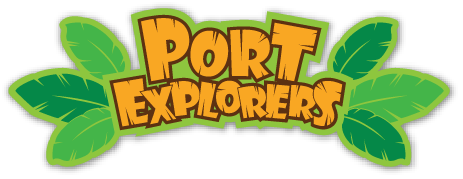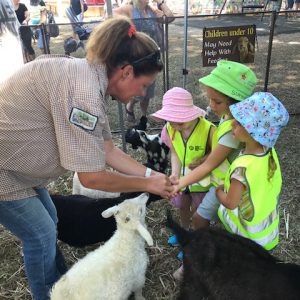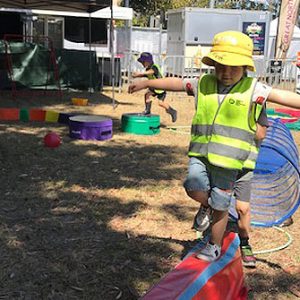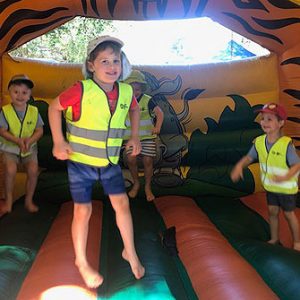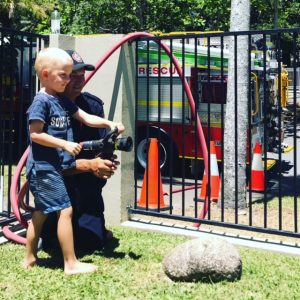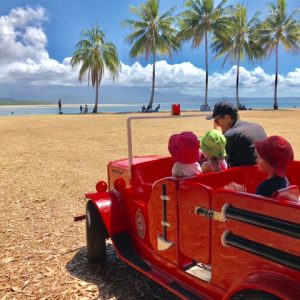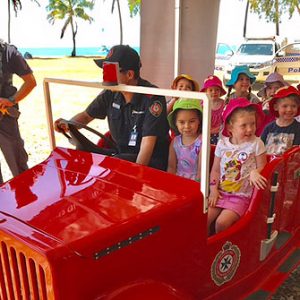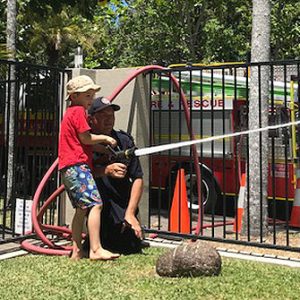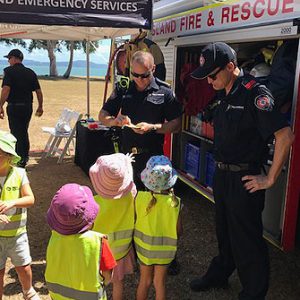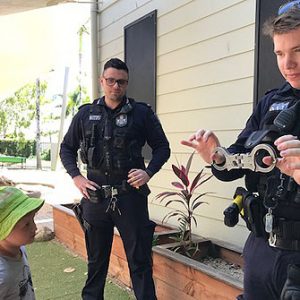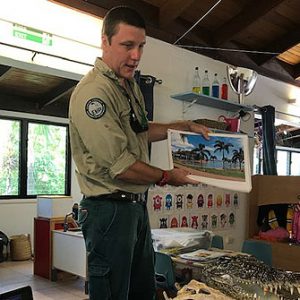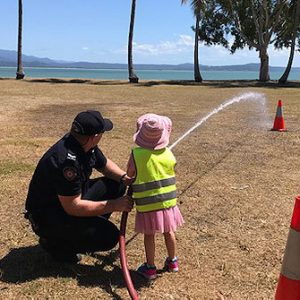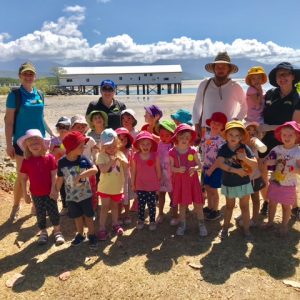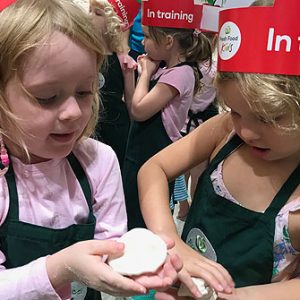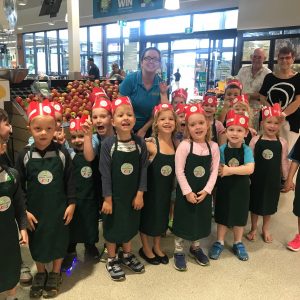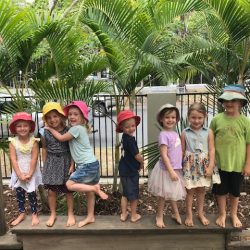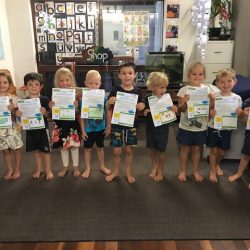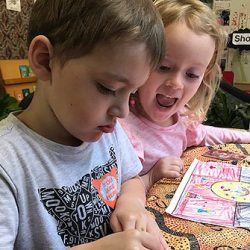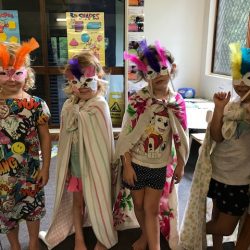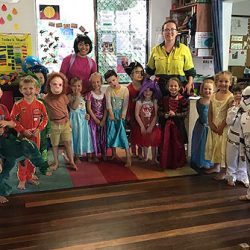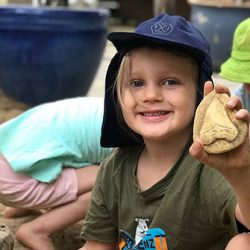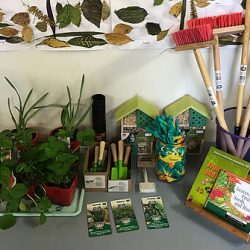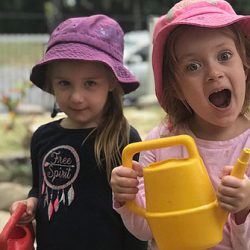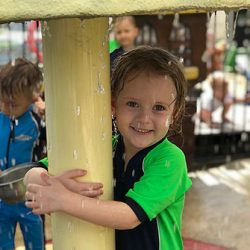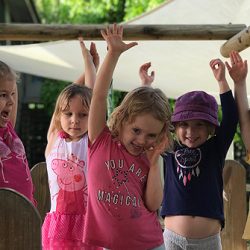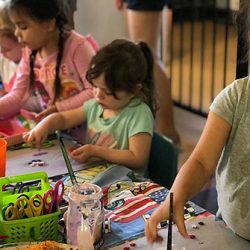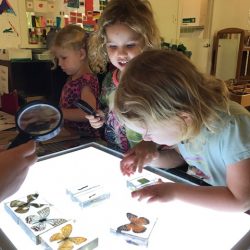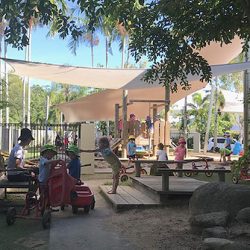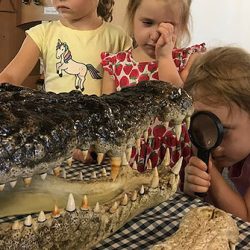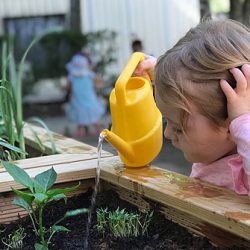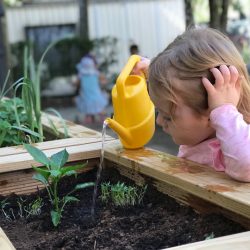Port Explorers provides Queensland Government approved Kindergarten programs, one in Port Douglas and another at our Cooya Campus. Our kindergarten program runs five days per week and is delivered by qualified early childhood teachers.
We understand the demands of busy working lives, at Port Explorers our Kindergarten program runs between 9.00am – 4.30pm. Our families benefit from our ‘long day care’ hours, and can drop off from 6.00am and pick up by 6.00pm.
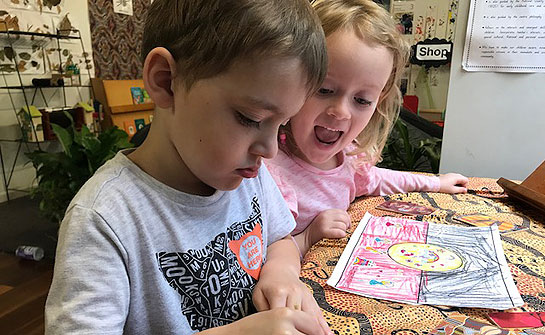
At Kindy your child will:
- take part in play-based learning
- expand their physical abilities
- build their confidence
- enhance their social and emotional skills
Mid year parent-teacher interviews are conducted by our qualified teachers to set individual goals for each child.
Transition statements will be prepared for each child towards the end of their kindy year. Transition statements provide a snapshot of each child’s knowledge, skills and dispositions for learning across the five learning and development areas in the Queensland Kindergarten Learning Guide. Your child’s kindergarten teacher will write the statement from a strengths-based perspective.
Transition statements help families to: understand their child’s learning progress and also share information with their child’s school to support continuity of learning.
Transition statements help Prep teachers to: understand each child’s learning progress and support each child’s successful transition to school.
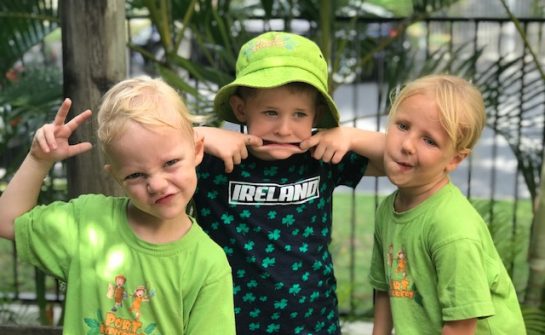
Fun Events and Visitors at Kindy
At Port Explorers we pride ourselves on having excellent relationships with our local Prep teachers and primary schools throughout the Douglas Shire. We are here to help your child transition to prep and enjoy a positive start to their school life.
Throughout your child’s kindy year they can expect to take part in some exciting excursions as well as very informative incursions:
- Croc wise
- Emergency Services
- Braveheart’s Australia Ditto’s Keep Safe Adventure Show
- Under 8’s Day Port Douglas State School
- Child Safety Week excursion
- Tangaroa Blue incursion
- Port Douglas Neighbourhood Centre excursion
- Book Week dress up/ celebrations
- PJ Day
- National Simultaneous Story time
- Speak Like a Pirate Day
- Graduation ceremony
- Christmas party
Indoor Play
Both Port Explorers kindy classrooms are generously resourced with beautiful wooden furniture inspired by nature.
The air-conditioned classrooms feature different zones for children to explore and get creative in.
Children are encouraged to take ownership of these spaces, inspiring play based learning activities through their own interests, as well as assisting to keep clean and tidy.
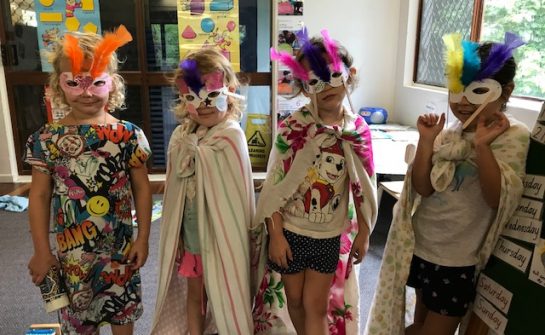
Outdoor Play
Both Port Explorers kindy classrooms have exciting outdoor play areas, featuring tropical gardens, large sandpits, water play, playground equipment and sporting resources.
By combining indoor and outdoor play, Port Explorers take the classroom outside immersing the children in nature, providing stimulating educational activities.
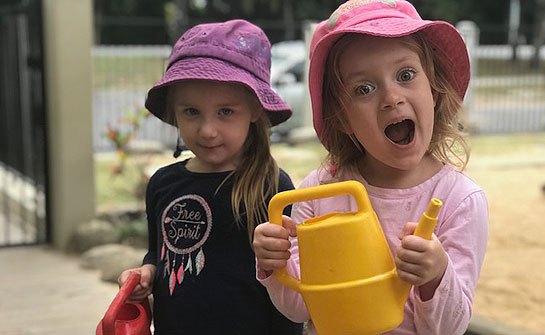
Queensland Kindergarten Program
In Queensland, the kindergarten year is the year before Prep (the first year of school). The Queensland kindergarten learning guideline (QKLG) provides advice for planning, documenting and assessing children’s learning and development, sharing information with parents/carers and, with consent, schools.
Kindy Age Requirements
Your child can attend kindy in the year they turn 4 years old by 30 June. You can use the kindy calculator below to help you determine your child’s start year.
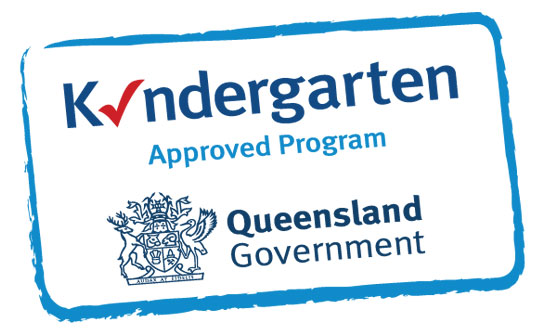

Curriculum Queensland Kindergarten Learning Guidelines
The QKLG provides advice for planning, documenting and assessing children’s learning and development, sharing information with parents/carers and, with consent, schools. These learning and development areas describe the knowledge, skills and dispositions that children explore during the kindergarten year.
Children build a strong sense of identity through connections with their families, peers, teachers and communities. Identity is not static — it changes over time and is influenced by an individual’s cultural identity and relationships.
Through these relationships, children develop a sense of belonging, confidence in others and in themselves, and an awareness of their own culture. They gain confidence in their abilities, a sense of agency in their decision-making and develop their independence.
Key focus:
- Building a sense of security and trust
- Acting with independence and perseverance
- Building a confident self-identity
Active learning helps children to build positive dispositions and approaches towards learning. It encourages increasing confidence, engagement and involvement in learning and the development of curiosity, problem-solving, creative thinking and investigation processes.
As active learners, children are developing understandings of themselves and their world, and creating their ideas through imaginative and dramatic play. They are showing an interest in technologies and the uses of different technologies.
Key Focus:
- Building positive dispositions towards learning
- Showing confidence and involvement in learning
- Using technologies for learning and communication.
Children are developing a sense of connectedness to their world. This connectedness helps them relate to the values, traditions and practices of their families, kindergartens, communities and the wider world. It supports them to learn about the interconnectedness of people and environments. Over time, this learning transforms the ways they interact with others and how they think about the world as ‘global citizens’.
Connectedness involves children’s understanding of and consideration for the rights of others and their respect for diversity. Children are developing an understanding of Aboriginal peoples’ and Torres Strait Islander peoples’ ways of knowing and being and their connection to Country and the importance of the connection between Country and the environment.
Key focus:
- Building positive relationships
- Showing respect for diversity
- Showing respect for environments
The foundation for children becoming effective citizens is their development of language, literacy and numeracy. Being able to communicate is fundamental to children’s everyday lives, including their ability to express their ideas and feelings, to question, to learn, to connect and interact with others. Children feel a strong sense of identity and connectedness when their ways of communicating are valued in the kindergarten environment.
Exploring and engaging with literacy through reading, viewing, listening, writing, speaking and creating in personally meaningful ways supports a kindergarten child to become an effective communicator. Numeracy is the capacity, confidence and disposition to use mathematics in everyday situations.
Key focus:
- Exploring and expanding language
- Exploring literacy in personally meaningful ways
- Exploring numeracy in personally meaningful ways.
Important aspects of wellbeing include children’s physical and mental health, personal safety and successful social functioning. Wellbeing is linked with resilience, providing children with the ability to manage change and respond to challenges. A strong sense of wellbeing requires positive, supportive and trusting relationships, which build children’s confidence and optimism.
Learning about healthy lifestyles, the importance of nutritional food, rest, physical activity (including fine and gross motor skills) and personal hygiene, and developing an awareness of safety are essential for enhancing children’s sense of wellbeing.
Key focus:
- Building a sense of autonomy
- Exploring ways to be healthy and safe
- Exploring ways to promote physical wellbeing.
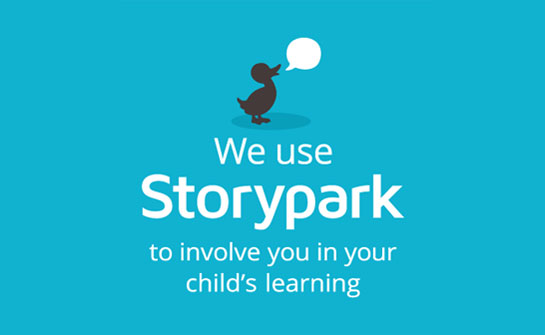
Keep Connected with Storypark
Storypark is an easy-to-use private online service that helps teachers, parents and families work together to record, share and extend children’s learning.You can capture a child’s development by posting photos, videos, stories, moments, notes and responses.
- Be part of your child’s day no matter where you are
- Extend your child’s interests and learning.
- Record your child’s stories and keep them forever.
- Share and collaborate with wider family in a safe, private environment.
- Perfect for any parent or family situation, including working couples, separated parents and overseas relatives.
“We know that learning another language is a great brain gym for children and that, in the longer term, the more access they have to a second language … they actually do better in school”.
Professor John Hajek, University of Melbourne

HOLA - Our Kindy Kids are Learning SPANISH!
ELLA is a digital, play-based language-learning program for preschool children. This Australian Government initiative inspires children by driving a genuine interest in a new language and culture.
In 2022 our Kindy class will be learning SPANISH!
Our kindy children will learn Spanish using a series of play-based apps called The Polyglots. (A polyglot is someone who is multilingual.) The apps were designed with help from language, early childhood and technology experts.
